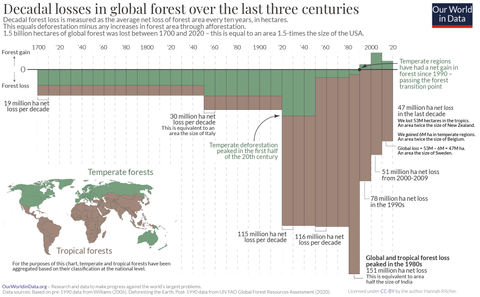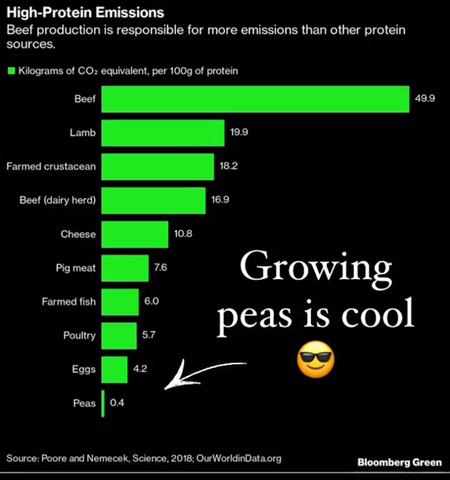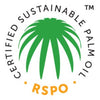3 Ways to be a Rainforest Superhero
Rainforests are probably the most important ecosystem on Earth - they are known as the "lungs of the Earth". They help keep the climate stable and predictable, store huge amounts of carbon dioxide, and are home to half the world’s plant and animal species.
Yet with every passing minute, around 30 football fields of rainforests are lost.
Deforestation causes 15% of our global carbon dioxide emissions – this is more than from all the cars in the U.S. and China combined.

There is some good news. The rate we are losing our forests is slowing down – it is 3x less now than the peak deforestation years in the 1980s – and in temperate regions, we have fully reversed the trend and are actually increasing forest coverage.
Protecting and regenerating forest is what is known as a natural climate solution to climate change. In all, natural climate solutions could account of 37% of the emissions reduction we need to limit global warming to 2 degrees.
All this talk of big numbers can make it seem like any one individual can’t make a difference, but we disagree. Our rainforests started as just a bunch of small seeds, and similarly can our collective actions grow together to make big changes. To mark World Rainforest Day, we’ve picked 3 small things we can all do in our daily lives which can really help.
-
Eat more vegetables and less meat
Beef farming is the number one cause of Amazon deforestation, fuelling our insatiable appetite for burgers. More generally, meat production is a much less (space and resource) efficient way to feed ourselves than growing vegetables.
You don’t have to go fully vegan – even just swapping out meat for one meal a week can make a big difference. Not only can it help save our rainforests, it also reduces your carbon footprint. As featured on our Instagram stories recently (give us a follow @sproutvegetables if you haven’t already!), plant-based proteins such as peas have a massively lower carbon footprint than meat.

-
Shop consciously
We’ve all heard that we should try to avoid buying products with palm oil in wherever possible but figuring out the supply chain of our products can be confusing. Luckily, there are many organisations out there that certify products so we can be confident when purchasing. Here’s a few to look out for:

The Rainforest Alliance certification seal means that the product (or a specified ingredient) was produced by farmers, foresters, and/or companies working together to create a world where people and nature thrive in harmony. You can find it on all sorts of things - like tea, coffee, bananas and chocolate.

Sometimes, you can’t avoid palm oil. When possible, look for products with the Roundtable on Sustainable Palm Oil (RSPO) logo. These products - such as biscuits and sun cream - must meet strict sustainability criteria to minimize the negative impacts of palm oil production.

The Forest Stewardship Council ensures that products come from responsibly-managed forests, making sure there is no illegal logging or the like. They cover everything derived from timber - including paper, cardboard, pencils, flooring and kitchen utensils.
-
Donate
There are loads of great charities committed to protecting our rainforests. If you want to donate, we recommend doing a little research and choosing a charity which has a mission that resonates with you.
